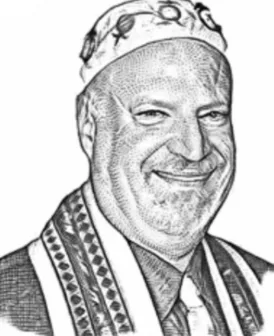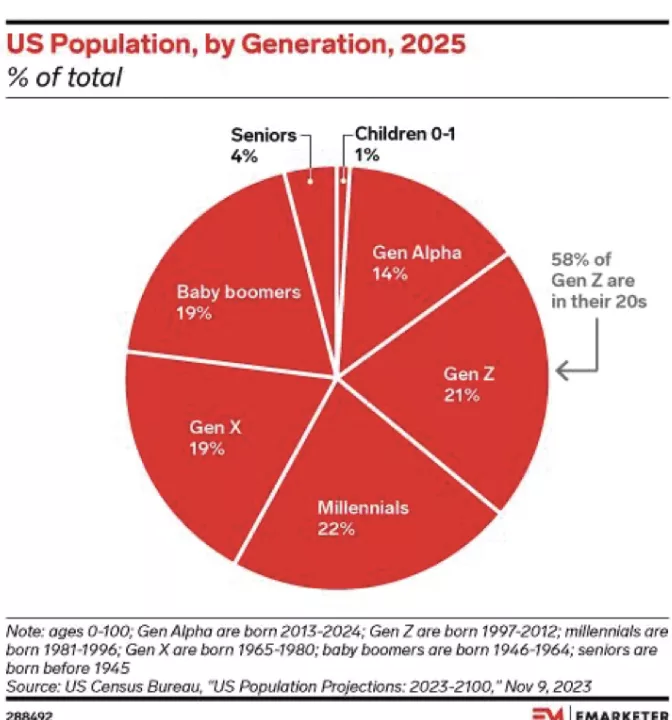Does Judaism believe in Angels?
Like many questions within Judaism, the answer is yes, no, and maybe; it always depends on which rabbi you ask.
The late 12th-century Rabbi Moses ben Maimon, also known to us as Maimonides or Rambam, recognized that the Bible frequently mentions that angels exist, but he asserted that they are incorporeal; they have no physical existence.
A common rabbinic teaching is that the Hebrew word for “angel” – “malach” – should be defined as a “messenger.” The malach is a conduit by which God delivers a particular message. Within this context, a malach could be a celestial being, a human, or something in between.
An ancient rabbinic midrash taught that the malach is human until they complete their Divinely charged task. After which, they are an “angel.”
Another midrash asserts that God created “angels” on the second day of creation. (Some rabbis argued for the fifth day of creation.)
Further rabbinic teachings assert that God continuously creates angels whenever Divine pronouncements occur.
Those rabbis who wish to assert the concept of the non-human angel teach that “angels walk upright, possess understanding, fly in the air, move quickly from one end of the world to another, and can accurately predict the future.”
I like to imagine God creating angels that can take on human form.
A premise for a television show I always liked and ran in the late ’80s was Highway to Heaven. Michael Landon played the role of Jonathan Smith, a man who died but was sent back to Earth as an “angel on probation” to do good work on God’s behalf. God was commonly referred to as the “Boss,” and I think it is helpful to perceive God in a managerial manner.
The TV show perceived how God performs miracles, and prayer has the power to move God. It also partnered Jonathan, the angel, with a human partner. Together, they would seek to help troubled souls.
The show highlighted the need for goodness, charity, and forgiveness, universal attributes by which we can best embrace God in our lives. One episode that stuck with me was when Jonathan revealed his “angel status” to a child who was out trick-or-treating. The boy asked: “If there can be angels, why can’t there be werewolves?” Jonathan’s reply: “God makes angels. He doesn’t make monsters.”
Other shows and movies have depicted angels, some with inspiring results.
This type of storytelling began with the Book of Genesis. In chapter 18, we read how angels in disguise appear to Abraham and Sarah and tell them they will have a child in their old age. In chapter 19, angels appear to Lot and his family and rescue them from Sodom just before it’s destroyed. In chapter 21, an angel appears to Hagar and saves her and her son from dying of thirst in the wilderness. In chapter 22, an angel intervenes at the very last moment and saves the life of Isaac.
Each biblical narrative teaches that angels are critical to helping one another.
Within the Genesis stories, what would have occurred if an angel hadn’t appeared in time? If the angels had not spoken to Abrahan and Sarah, they might have forsaken trying to have their baby in their “old age.” If the angels had not taken action in time, Lot and his family might have perished in Sodom. If the angel had not spoken to Hagar, she might not have seen the water well, and she and her son might have died of thirst. If the angel had not intervened with Abraham, Isaac might have died, and with him, the future of the Jewish People would have died as well.
Whether the angel is a human, celestial, or in-between is irrelevant. No matter the answer, we can manifest angels within our lives with our sacred actions of goodness, charity, and forgiveness.
The Psalmist declared that “God makes the winds His messengers.” The Hebrew word for wind is ruach, which also means spirit. So, we can read that God makes the spirit the conduit of the Divine message. And humans are the physical vessels carrying God’s spirit within us.
Jewish mystical tradition, Kabbalah, teaches that angels are the invisible metaphysical energy within each of us. This energy is like a magnet that can physically move something by a force invisible to the eye.
Our human behavior can create the energies by which we manifest God’s presence or push God’s presence further away.
Will we be angelic conduits that create the “Highway to Heaven” or the roadblock to reaching God?
Each Friday night, we sing about the Ministering Angels and ask them to bring us God’s gift of Peace. The prayer is “Shalom Aleichem.” When we sing this prayer, we recall the midrash that two ministering angels escort a person from the synagogue to their home on the Sabbath eve. One angel is good, and the other is not-so-good.
If the angel finds in the home a sacred space of love and support consistent with the Sabbath spirit, the good angel will say: “May it be the will of God that it should be this way next Shabbat as well.” And the not-so-good angel is forced to answer “amen” against their will.
And if it isn’t like this, the not-so-good angel will say: “May it be the will of God that it should be this way next Shabbat as well.” And the good angel is forced to answer “amen” against their will.
There exists no neutral position; either the trajectory is to that which is good or not-so-good. And, a habit becomes hard to re-direct.
The Prayer “Shalom Alecheim” asks the ministering angels to help us cultivate the physical and spiritual energy to love each other so that we might dwell in Peace.
Perhaps we can start cultivating the spiritual energy needed to create the required angelic presence in our lives by keeping the Sabbath and ensuring the power of tangible love and holiness permeates our dwelling places once a week.
The Psalmist also proclaimed: “God will order the angels to guard us whenever and wherever we go…” We must ask God to do this for us when we create the sacred space and time to make this occur.
Shabbat Shalom.
Temple Sholom’s Senior Rabbi Mitchell M. Hurvitz is a scholar, teacher, community activist and preacher, and is recognized as one of the prominent religious leaders in the Greenwich area and beyond. A frequent guest speaker at synagogues and churches, study groups, community institutions and universities, he is a charismatic personality who engages individuals and stimulates hearts and minds. His teachings can be found in Greenwich Sentinel and in other local and national publications.




